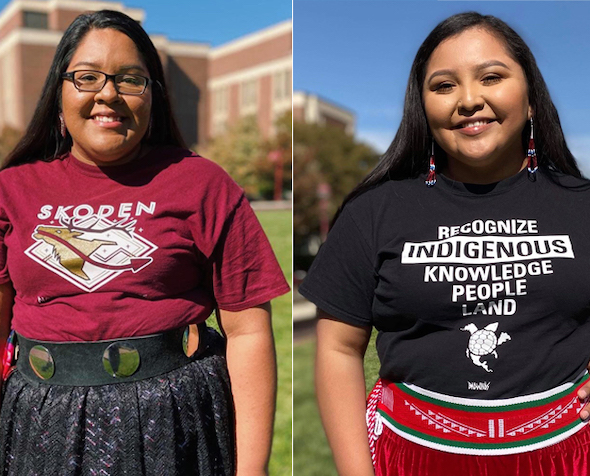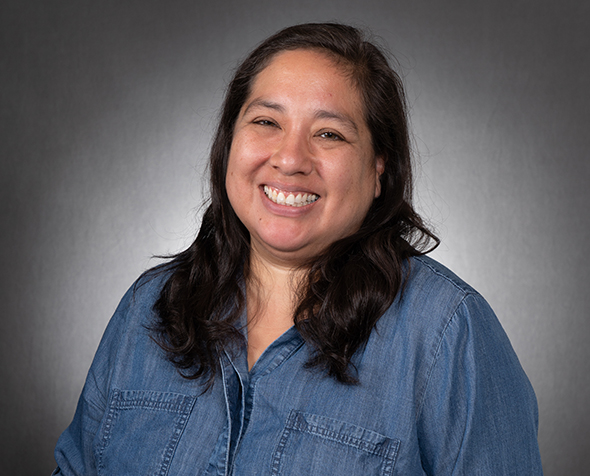Exploring the Ethics of Native American Collections

Angela Parker, Melanie Yazzie, Jan Jacobs and Dakota Hoska at the Ethical Stewardship of Contemporary Native Art event at DU
DU’s Center for Art Collection Ethics (ACE) is raising awareness of the legal and ethical dimensions of art collection stewardship. In February, Native artists and practitioners visited campus, offering insights on the ethics of creating, conserving and displaying contemporary Native American objects.
ACE Director and Associate Professor of History at DU, Elizabeth Campbell opened the event with a moment of reflection to acknowledge the past in a spirit of healing and to set the intention of giving back to Native American people. Dakota Hoska, assistant curator of Native arts at the Denver Art Museum, opened the panel by discussing the complex overlap between art, culture and history.
“How am I looking at a piece made by Native hands as art and not as a historical artifact? How do many displays use us as a history lesson rather than understanding us as people?” Hoska asked.
Hoska’s words invite viewers and curators to reconsider how Native art collections are understood in time, and whether certain items often found in museums truly should be on public display.
Jan Jacobs explored time from a different perspective, drawing on her work as the former adjunct associate curator of Native arts, assistant dean of education and artist-in-residence at the Denver Art Museum, as well as her practice as a ribbonworker. Jacobs discussed the vital link between lineage, gender and indigeneity, explaining that the art of ribbonwork “is alive today because of women wanting to make sure it is carried forward.”
Lastly, artist Melanie Yazzie spoke of her work as a painter, printmaker and multimedia professor at the University of Colorado-Boulder.
“Nothing is too small to honor in a piece of art,” Yazzie reminded both viewers and creators.
From the colors in her prints, to the tools she works with and other artists with whom she collaborates, Yazzie’s work emphasizes that “every time we’re making things, we’re telling our stories.”
ACE’s inaugural training program in June 2020 investigates stewardship of Native American items under the guidance of experts like Hoska, Jacobs and Yazzie. The weeklong intensive will include sessions with members of the historic tribes of Colorado, in which they will convey the importance of these objects and, in some cases, the spiritual dimension of items now in museum collections.
Participants in the program will study collections in DU’s Museum of Anthropology (DUMA) and the Denver Museum of Nature & Science, and discuss ethical curation with experts at the Denver Art Museum, including Hoska, and at History Colorado. Eminent Native experts will give talks and lead discussions, and the keynote address will be delivered by Cynthia Chavez Lamar, assistant director for collections at the Smithsonian’s National Museum of the American Indian.
Applications for the program in June 2020 are due by March 15. More information is available here.



